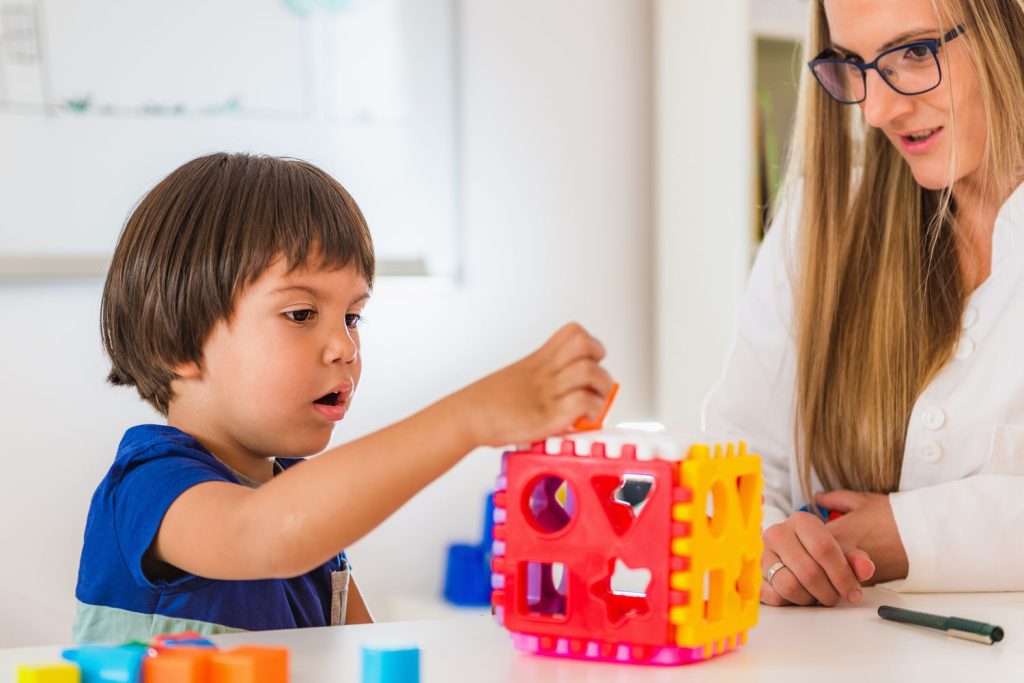Child therapy is a specialized area dedicated to addressing the emotional, psychological, and behavioral needs of children and adolescents. This article explores the importance of Child therapy, its benefits, various types, and what parents can expect during the therapy process.
Understanding Child Therapy
Child therapy, also known as pediatric therapy, involves therapeutic techniques designed specifically for children. It aims to help them understand their feelings, resolve conflicts, and develop healthy coping mechanisms. The goal is to support the child’s emotional and psychological development.
Benefits of Child Therapy
Emotional Support
Child therapy provides a safe environment for children to express their emotions. Therapists help them understand their feelings and develop healthy ways to manage them, fostering emotional intelligence and resilience.
Behavioral Improvement
Therapists work with children to identify and change problematic behaviors. This can lead to improved behavior at home, in school, and in social settings, contributing to a more positive overall environment.
Enhanced Coping Skills
Through therapy, children learn valuable coping strategies to handle stress, anxiety, and other challenges. These skills are essential for their long-term mental health and well-being.
Stronger Relationships
Therapy can enhance a child’s relationships with family members, peers, and teachers by improving communication and social skills. This leads to healthier and more supportive interactions.
Types of Child Therapy
Cognitive Behavioral Therapy (CBT)
CBT helps children identify and change negative thought patterns and behaviors. It is effective in treating anxiety, depression, and various behavioral issues by promoting positive thinking and problem-solving skills.
Play Therapy
Play therapy allows children to express their feelings and resolve issues through play. It is particularly effective for younger children who may have difficulty articulating their emotions verbally.
Family Therapy
Family therapy involves the entire family in the therapeutic process. It aims to improve family dynamics and communication, creating a supportive environment for the child.
Art Therapy
Art therapy uses creative activities like drawing and painting to help children express themselves. It is useful for children who struggle with verbal communication and provides a non-verbal outlet for their emotions.
What to Expect in Child Therapy
Initial Consultation
The therapy process typically begins with an initial consultation. The therapist meets with the child and their parents to gather information about the child’s history, current issues, and therapy goals.
Assessment and Treatment Plan
The therapist conducts a detailed assessment to understand the child’s needs. Based on this assessment, they develop a personalized treatment plan outlining the therapy goals and methods.
Therapy Sessions
During therapy sessions, the child engages in activities designed to address their specific issues. The therapist may use talking, play, or creative techniques, depending on the child’s age and needs.
Parental Involvement
Parents play a crucial role in their child’s therapy. Therapists often provide parents with strategies to support their child’s progress at home and maintain open communication about the child’s development.
Progress Evaluation
Therapists regularly evaluate the child’s progress and adjust the treatment plan as needed. This ensures that the therapy remains effective and aligned with the child’s evolving needs.
When to Seek Child Therapy
Signs of Emotional Distress
If a child exhibits signs of emotional distress, such as persistent sadness, anxiety, or anger, it may be time to seek professional help.
Behavioral Issues
Persistent behavioral problems, such as aggression, defiance, or withdrawal, can indicate underlying issues that require therapy.
Trauma and Loss
Children who have experienced trauma, such as abuse, loss, or significant life changes, can benefit from therapy to process and heal from these experiences.
Academic or Social Difficulties
If a child is struggling academically or socially, therapy can help identify and address the underlying issues affecting their performance and interactions.
Finding a Child Therapist
Research and Credentials
When looking for a child therapist, it is important to research their credentials and experience. Look for licensed professionals who specialize in child therapy and have a proven track record of success.
Compatibility
Finding a therapist who connects well with your child is crucial. An initial consultation can help determine if the therapist’s approach aligns with your child’s needs and personality.
Conclusion
Child therapy is a vital resource for helping children navigate emotional, behavioral, and psychological challenges. By providing a supportive environment and using age-appropriate therapeutic techniques, therapists can significantly enhance a child’s well-being and development. If you notice signs of distress or behavioral issues in your child, consider seeking the assistance of a qualified child therapist to support their growth and happiness.



